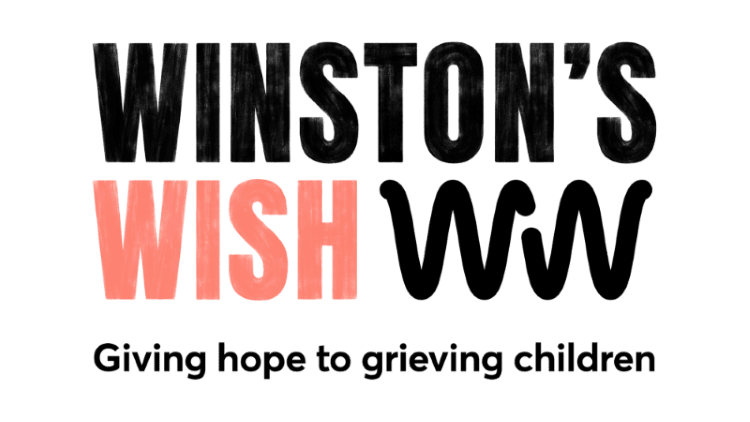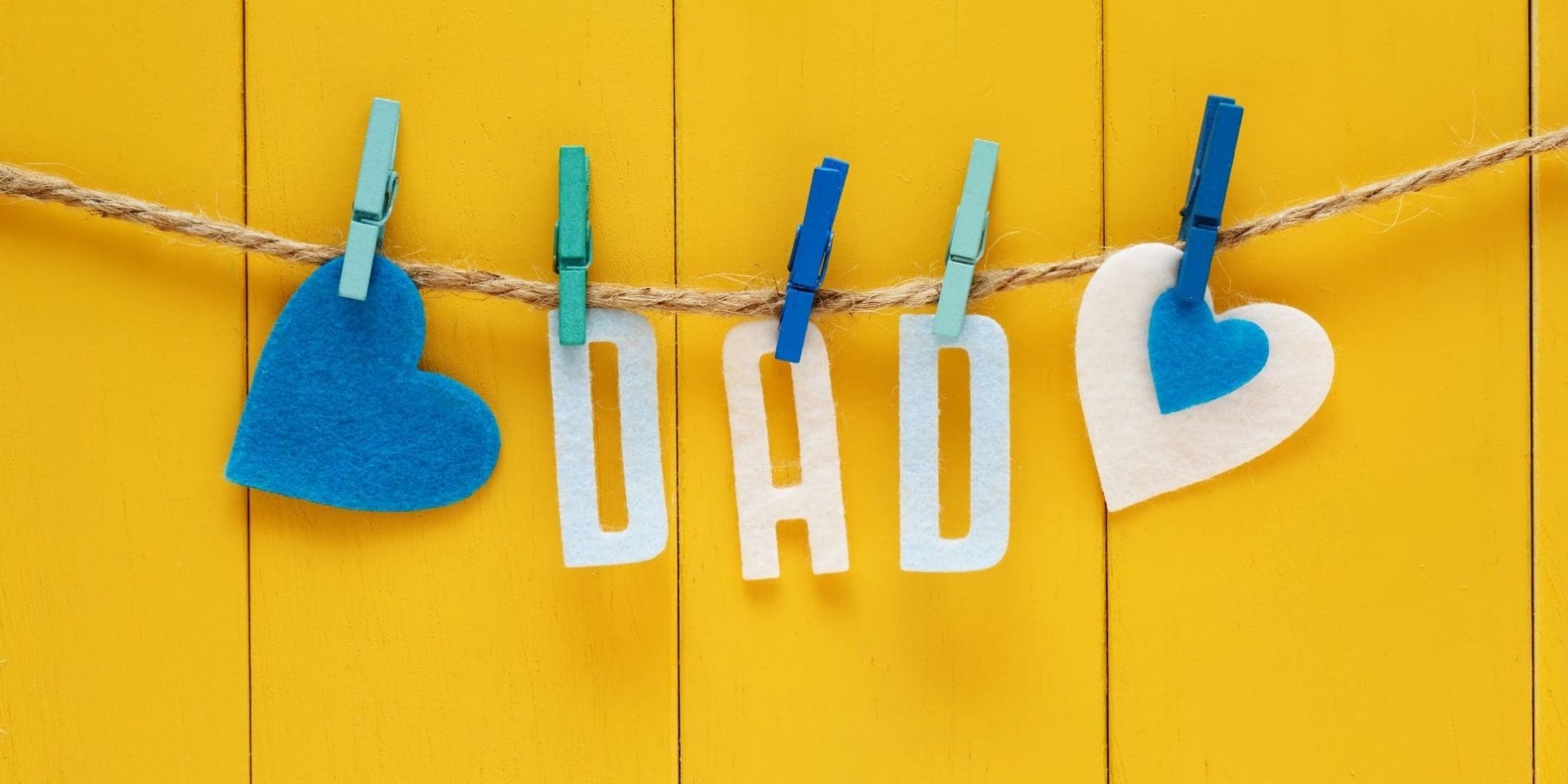For children and young people whose dad has died, Father’s Day can be a difficult day. It doesn’t matter whether it’s your first Father’s Day after dad died or it has been many years. As with other special days, it can be a time when their grief is brought to the surface, their emotions are heightened and they are constantly reminded that their dad is no longer there.
We asked six young people – Grace, Emily, Zoe, Ashleigh, Tom and Hebe – who have all received resources and support from Winston’s Wish after the death of their dad, what they do on Father’s Day and their advice to others.
1. Do things that remind you of your dad on Father’s Day
If you feel able, you could take some time on Father’s Day to remember your dad. Maybe you could eat their favourite dinner, listen to their favourite music or do an activity that they enjoyed or you used to do together. You could share a memory of your dad on our special online dedication page or set up an online tribute page where you and others can share memories of your dad.
Every Father’s Day and anniversary, my mum and I have my dad’s favourite food – curry! Food and learning how to cook is something that my dad left me with when he died. I love to cook and bake the recipes he taught me and also explore new things to try.
Grace
I remember all the amazing things about him and feel close to him on that day. I have a memory candle that I light on Father’s Day and I look through my memory box. I have a lot of photos and special things that help me remember him.
Tom
Every year, on my dad’s birthday, my mum, my brother and I would cook a curry to remind us of my dad. Now that I’m old enough, I drink a beer on his birthday and on Father’s Day and use it as a tribute to his memory. Sometimes I’ll watch a film that reminds me of him, or go for a walk over the golf course where we scattered his ashes.
Emily
2. Talk about your dad
Father’s Day can be a good opportunity to talk about your dad. You could talk to your family, your friends or people who knew your dad. Maybe you could talk about your memories or ask people about their memories of your dad. You might learn things you didn’t know before such as what he was like at school or the worst birthday present he ever bought. We have some ideas for activities you could do to help you talk about your dad.
Talking with your family and others can be really helpful especially to keep the person’s memory alive. I’m still working on being able to talk openly about how I feel, which would’ve been much easier if I hadn’t bottled it up to begin with. Through talking with your family you’ll become closer which really helps to create your new family unit.
Hebe
I was very young when my dad died, so I ask my mum to tell me stories of what my dad was like and go through some of his belongings.
Zoe
3. Avoid social media on Father’s Day
It can feel like you are being bombarded with social media posts of your friends and their dads or from companies selling Father’s Day gifts. So some young people find it helpful to avoid social media on Father’s Day. Or maybe you could post a photo or memory of your dad on your social media.
It can be a good idea to avoid social media on Father’s Day. I still struggle with seeing Father’s Day posts with everyone looking happy and cheerful all over social media, even now, years and years after he died. So if you can avoid seeing them, it helps. Although I know many people like to post a tribute, so if that works for you then go for it!
Emily
My dad died just a month before Father’s Day so the first one without him was very difficult. I just couldn’t believe that he wasn’t going to be with me on Father’s Day and it was hard watching other children and friends with their fathers.
Tom
4. Make a Father’s Day card for your dad
It can be painful for bereaved young people when they are asked to make a Father’s Day card at school, nursery or group. However, some young people like to make a card or buy a gift for their dad. You could take it to his grave or favourite place or keep it in a memory box. Other young people prefer to make a card for another important man in their life – perhaps your granddad or stepdad – or for their remaining parent.
I make a Father’s Day card – just because he’s not there to receive it doesn’t mean you can’t make one. I like to go to his favourite place and leave it there for him. If this isn’t possible during this time, then I would put it in a memory box.
Zoe
5. Let your feelings out
Significant days like Father’s Day, birthdays and anniversaries can heighten your emotions. Don’t bottle your feelings up. If you want to cry then have a good cry – you’ll probably feel better afterwards! You could talk to a family member or friend, or someone you don’t know. You can talk to our bereavement team by phone (08088 020 021, open 8am-8pm, weekdays), email ask@winstonswish.org or live chat (open 3-8pm, weekdays) or use our Crisis Messenger for urgent support (text WW to 85258, open 24/7). If you don’t want to talk then it might help to write your feelings down, maybe in a diary or as a letter.
The next thing I do is cry. I let it all out because I know that I’m going to feel better afterwards. I sit in bed and cry. Looking through photos, listening to music and crying is usually my routine on a day like Father’s Day. It helps to release pressure of having to be ok.
Grace
Don’t hold in your emotions! As someone who was constantly doing this, let it out no matter how you feel because it does more damage than good when you hold in how you feel. My last piece of advice would be to write down your feelings. It may sound silly but this something I tried and felt a lot better afterwards. This isn’t something you need to give to anyone, but is just for you as a way to let your feelings out.
Ashleigh
6. Visit a special place
Visiting a special place can be a good way to remember your dad on Father’s Day. It could be his grave or where his ashes are scattered. Or it could be somewhere you used to go together or his favourite place.
This will be my first Father’s Day without my dad and I know I’m going to find it really difficult without him, because it was always a special day and a day I got to thank him for being such a great dad and taking care of me. This Father’s Day I will still celebrate it although I’ll be so heartbroken that I can’t share it with him. I will buy a card and a gift I know he’d love and go to one of our favourite places we used to go.
Ashleigh
7. Remember that you are not alone
You may feel so alone but just remember there are lots of people who have been through similar situations and there are people who can help.
Hebe
I think the most important thing to remember every Father’s Day, is that although it may feel like it sometimes, you are not alone in going through this.
Zoe
Where to get support
If you are a bereaved young person or an adult supporting a bereaved child or young person who is struggling with their grief, please call us on 08088 020 021 (8am-8pm, weekdays), email ask@winstonswish.org or use our live chat (8am-8pm, weekdays). They will be able to offer guidance, information and support.
If you need urgent support, our Winston’s Wish Crisis Messenger is available 24/7. Text WW to 85258
Winston’s Wish is a charity. We rely on our army of supporters for 92% of our income so we can continue to provide free bereavement support for children and young people.
If you’d like to remember your dad and support Winston’s Wish at the same time, you can create a special online dedication here or make a donation in his memory here.

Ways to cope with anniversaries, birthdays and special days
Feelings can often resurface on special dates such as anniversaries and birthdays. How do you manage those days and cope with our emotions?

Activities for bereaved children
Activities to help grieving children and young people to explore and express their feelings and to help them maintain memories of the person who has died.


